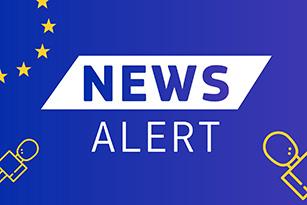
The Ukraine Donor Platform’s Steering Committee held its thirteenth meeting today, gathering for the second time in person in Ukraine’s capital Kyiv. The meeting brought together senior representatives of Platform members, observers, as well as International Financial Institutions. Team Europe was represented by the European Commission, as well as 14 EU Member States (six Platform members and eight observers).
The European Commission reiterated the EU’s unwavering commitment to supporting Ukraine until it achieves a just and lasting peace, and along its path towards EU membership. The EU will continue to provide Ukraine with regular and predictable financial assistance and remains committed to supporting Ukraine’s repair, recovery and reconstruction needs, in coordination with international partners and the private sector. The EU , including its Member States, is Ukraine’s largest and most stable donor and foreign investor.
Budget financing needs
Ukraine confirmed its external financing needs for 2025, projected at USD 39.3 billion. So far this year, the EU has disbursed EUR 7.5bn under the Ukraine Plan and the exceptional Macro-Financial Assistance (MFA) loan and expects to further disburse up to EUR 23.1bn in the course of 2025. This means that up to 84% of Ukraine’s external financing needs this year will be covered by the EU. The MFA amounts to EUR 18.1 billion, representing the EU's contribution to the G7-led Extraordinary Revenue Acceleration (ERA) loans initiative, which collectively aims to provide approximately EUR 45 billion in financing to fund Ukraine’s budget, military, and reconstruction needs. The Steering Committee also heard from the Canadian G7 Presidency about the important efforts underway to support Ukraine in the context of the G7 finance track.
Recovery and reconstruction of Ukraine
Ukraine presented its top recovery and reconstruction priorities for 2025, based on the fourth Rapid Damage and Needs Assessment and the Single Project Pipeline established by the Government of Ukraine: energy, heating, water supply and sanitation, housing and transport. Delivering effective support for Ukraine’s recovery and reconstruction is a key priority for the Platform and donors committed to further strengthen their engagement on this track. The Commission emphasised that EU support aligns closely with the priorities outlined by the Government of Ukraine.
Ukraine has withstood the 2024-25 winter season, surmounting the impact of Russia’s attacks on energy infrastructure, with the strong support of the donor community. The EU will continue to support Ukraine in realising its vision of a cleaner, more modern, decentralised energy system that is integrated with the EU. In this context, in February 2025, the European Commission announced an energy security and integration package for Ukraine. This will facilitate electricity market integration with the EU by spring 2027, as well as further integration in the EU gas sector, provided Ukraine speeds up the implementation of certain existing reform commitments. The package also includes financial support for gas purchases and increased investments in renewables.
The Commission, along with other partners, noted the importance of war risk insurance for Ukraine’s recovery and reconstruction and for supporting international trade and investment. In this context, work continues on facilitating the return of global reinsurance businesses to Ukraine.
Reforms driving sustainable growth and progress towards EU accession
Many participants welcomed Ukraine’s strong and steady progress on implementing reforms, including those under the Ukraine Plan, which are essential to improve the business climate, attract foreign direct investment and support economic development. These reforms will also facilitate Ukraine’s progress towards EU membership.
Enhancing public investment management for recovery and reconstruction
Ukraine updated on its progress towards an effective, transparent and well-coordinated public investment management (PIM) system, which is crucial for its successful recovery and reconstruction. The system will streamline strategic planning, prioritization mechanisms and medium-term budgeting across all levels of government, while also taking into account its EU accession path. An integral part will be the two project preparation facilities under development – the Ukraine Government Project Preparation Facility (PPF), to be administered by the Government of Ukraine with support from the World Bank, and the Ukraine Facility for Infrastructure Reconstruction (FIRST), to be administered by the EIB and EBRD and supported by the Commission with €20 million. The facilities are expected to be operational by the next Ukraine Recovery Conference (URC 2025), which will be hosted by the Governments of Italy and Ukraine in Rome on 10-11 July 2025.
Stakeholder engagement
The Steering Committee discussed the latest input by the Business Advisory Council (BAC) and commended its members’ efforts to identify concrete steps to boost private sector investment in Ukraine. It also held a productive exchange of views with representatives of Ukrainian civil society, with a focus on human capital. This discussion also served as a preparation for the human dimension of URC 2025.
Background
The Ukraine Donor Platform (initially called the “Multi-Agency Donor Coordination Platform for Ukraine”) was launched on 26 January 2023 to coordinate donors’ efforts to address Ukraine's financing needs, both in the short to medium-term.
The Platform’s Steering Committee brings together high-level officials from Ukraine, the EU, and the G7 countries as permanent members. Annual temporary members are the Republic of Korea, The Netherlands, Norway, Sweden and Denmark. Observer states are Belgium, Estonia, Finland, Latvia, Lithuania, Luxembourg, Poland, Spain, and Switzerland. International Financial Institutions and organisations also participate, namely the European Investment Bank, the European Bank for Reconstruction and Development, the International Monetary Fund, the World Bank, the Council of Europe Development Bank, the International Finance Corporation and the Organisation for Economic Co-operation and Development.
The next Steering Committee meeting is expected to take place on the margins of URC 2025.
Details
- Publication date
- 2 April 2025
- Author
- Directorate-General for Enlargement and Eastern Neighbourhood
